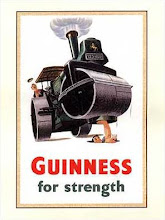Received Fall 1987. Date written unknown. By Professor Thomas Hon @ Northside High School, Fort Smith, AR.
In promulgating your esoteric cogitations
or articulating your superficial sentimentalities
and amicable or psychological observations,
beware of platitudinous ponderosity.
Let your conversational communications possess
a clarified conciseness, a compact comprehensibleness,
a coalescent consistency, and a concatenated cogency.
Eschew all conglomerations of flatulent garrulity,
jejune babblement, and asinine affectations.
Sedulously avoid all polysyllabic profundity,
pompous prolixity, psittaceous vacuity, ventriloquial verbosity,
and vaniloquent vapidity.
Shun double entendres, prurient jocosity,
and pestiferous profanity, obscurant or apparent;
and, above all,
don't use big words.

Linguistics joke
A Midwesterner arrives in Boston for business, and decides that while he's in town he should try some of the seafood for which New England is famous. So he gets into a taxi and asks the driver, "Where can I get scrod around here?" And the taxi driver responds, "A lot of people ask that, but you're the first to use the pluperfect subjunctive."
(Scrod is the pluperfect particle of "to screw". And scrod is a type of fish)
BWAHAHAHAHAHAHahahaha...hah..ha..oh well...I liked it, anyway!
Latest Ava quotes
"I weird!"
"I want to see Cars again and again!"

"Daddy throw Ava on the couch!" --what the...??!!??
"Turn on the light on."
"Silly bad cars."
"Mommy sit on the couch and watch Cars with Ava."
Spelling Bees in other languages
 Bees Overseas
Bees OverseasHow do spelling contests work in other countries?
By Michelle Tsai
Close to 300 boys and girls will be stepping up to the mic at this week's Scripps National Spelling Bee. They hail from across the United States, as well as from countries like Germany, Jamaica, the Bahamas, New Zealand, and Canada. Wait, do non-English-speaking countries have spelling bees, too?
Not exactly. Spelling bees are a particularly British and American phenomenon. The orthography of some Romance languages, like Spanish, is so regular that one can easily figure out the spelling of a word just by hearing the way it sounds. English, on the other hand, contains Latin, Greek, Germanic, and other roots, not to mention whole words borrowed from other languages. That's why an American schoolchild might get stuck with tricky words like ursprache and appoggiatura.
Francophone nations aren't satisfied with mere spelling; they test for correct grammar, too. French speakers around the world enter Quebec's Dictée des Amériques, an international competition started in 1994. Contestants take a local multiple-choice test on grammar before moving on to the next rounds. At the finals, they'll hear a passage—composed for the contest by a famous author—read aloud four times. Each contestant must scribble down the text of the passage (word for word) in about an hour. Each mistake is a point, so zero—the score of Bruno Dewaele, one of the 2006 champions—is the best possible outcome. (Who says Americans are monolingual? The United States sends about 10 finalists to the dictée each year.) The Canadian dictée takes after France's Dicos d'Or, a contest that was discontinued a couple of years ago after more than two decades. The televised contest was so popular in France that families often took the dictée together. The Dutch also have a similar contest called Het Groot Dictee, which pits 30 regular folks and 30 celebrities against one another.
Nonalphabetic languages have their own competitions. Chinese kids join dictionary contests, where they look up words as fast as they can. Unlike English, you can't completely decipher a Chinese character's pronunciation just by looking at it, and characters can have many components. Thus there are several ways to find words in dictionaries. Students can look for the character's radical, or semantic, root and search by the number of strokes in the character. If they know what the word sounds like, they can choose instead to look up the pinyin, or Romanized version, of the character. A third way involves a sort of Dewey Decimal System of words: By examining the strokes in the four "corners" of the character, expressing each corner as a number (a square is a six, for example), they can then use the resulting four-digit code to find a word in a special dictionary. Students also enter typing contests, where again the complexity of Chinese characters poses challenges.
In Japan, where Chinese characters known as kanji are part of the language, you might see entire families entering the Kanji proficiency exam, known as the Kanken. There are 10 levels, each testing for skills like writing, pronunciation, and stroke order. Level 1 is the hardest and requires knowledge of about 6,000 kanji; in 2000 just 208 people passed this test.
Great semi-quote about hs graduation

"highly inappropriate messages (such as "Thanks, Mom & Dad") were placed on mortarboards, etc.. Then we looked at the administrators, who had become nothing more than giant, pulsating forehead veins..."




No comments:
Post a Comment